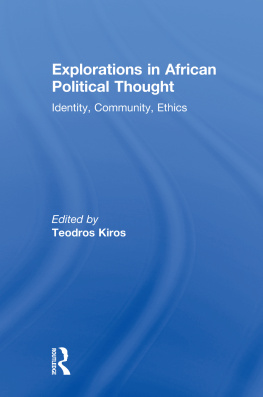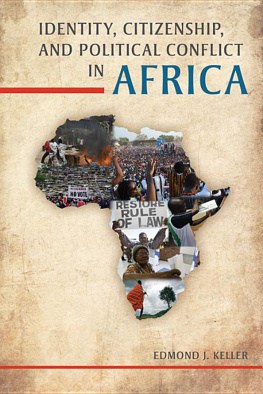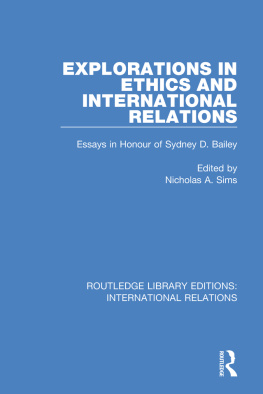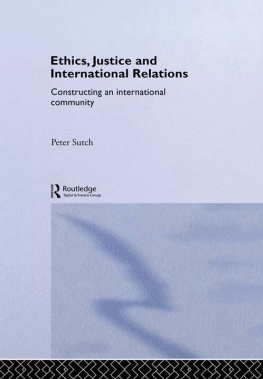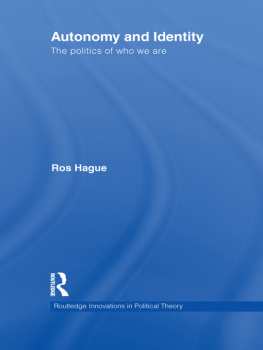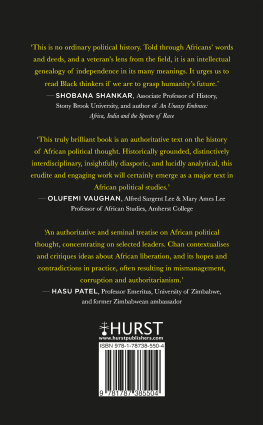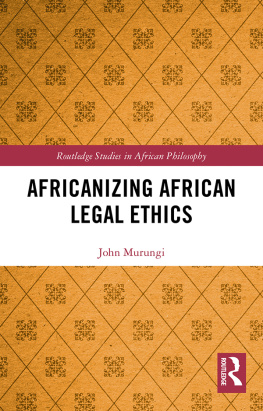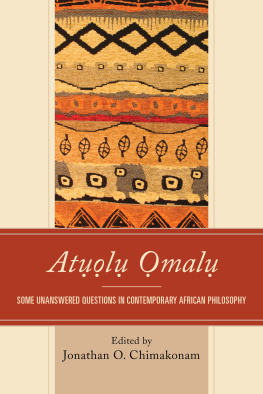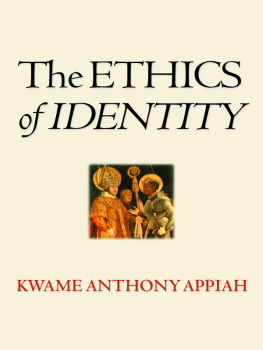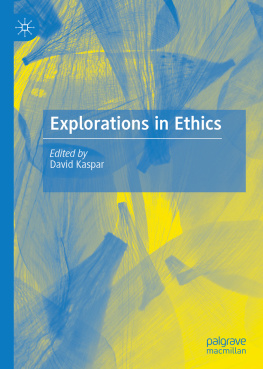Teodros Kiros - Explorations in African Political Thought: Identity, Community, Ethics
Here you can read online Teodros Kiros - Explorations in African Political Thought: Identity, Community, Ethics full text of the book (entire story) in english for free. Download pdf and epub, get meaning, cover and reviews about this ebook. year: 2001, publisher: Routledge, genre: Religion. Description of the work, (preface) as well as reviews are available. Best literature library LitArk.com created for fans of good reading and offers a wide selection of genres:
Romance novel
Science fiction
Adventure
Detective
Science
History
Home and family
Prose
Art
Politics
Computer
Non-fiction
Religion
Business
Children
Humor
Choose a favorite category and find really read worthwhile books. Enjoy immersion in the world of imagination, feel the emotions of the characters or learn something new for yourself, make an fascinating discovery.
- Book:Explorations in African Political Thought: Identity, Community, Ethics
- Author:
- Publisher:Routledge
- Genre:
- Year:2001
- Rating:3 / 5
- Favourites:Add to favourites
- Your mark:
- 60
- 1
- 2
- 3
- 4
- 5
Explorations in African Political Thought: Identity, Community, Ethics: summary, description and annotation
We offer to read an annotation, description, summary or preface (depends on what the author of the book "Explorations in African Political Thought: Identity, Community, Ethics" wrote himself). If you haven't found the necessary information about the book — write in the comments, we will try to find it.
Teodros Kiros: author's other books
Who wrote Explorations in African Political Thought: Identity, Community, Ethics? Find out the surname, the name of the author of the book and a list of all author's works by series.
Explorations in African Political Thought: Identity, Community, Ethics — read online for free the complete book (whole text) full work
Below is the text of the book, divided by pages. System saving the place of the last page read, allows you to conveniently read the book "Explorations in African Political Thought: Identity, Community, Ethics" online for free, without having to search again every time where you left off. Put a bookmark, and you can go to the page where you finished reading at any time.
Font size:
Interval:
Bookmark:
Edited by Rodolfo D. Torres and George Katsiaficas
Education and Autonomy in the 21st Century
Edited by George Katsiaficas and Teodros Kiros
Edited by Chris Toulouse and Timothy W. Luke
A New Look at the Panthers and Their Legacy
Edited by Kathleen Cleaver and George Katsiaficas
Teodros Kiros

711 Third Avenue
New York, NY 10017
Routledge
2 Park Square, Milton Park
Abingdon, Oxon, OX14 4RN
Explorations in African political thought: identity,community, ethics /
[edited by] Teodros Kiros; with a preface by K. Anthony Appiah.
p. cm.
Includes bibliographical references.
ISBN 0-415-92766-8 (hbk.) ISBN 0-415 92767-6 (pbk.)
1. Political scienceAfrica. I. Kiros, Teodros.
JA84.A33 E96 2000
320'.01dc21 00-032313
| Teodros Kiros |
| Gail M. Presbey |
| Claude Sumner |
| K. Anthony Appiah |
| George Katsiaficas |
| Teodros Kiros |
| D. A. Masolo |
| Ali A. Mazrui |
| I. A. Menkiti |
| Ajume H. Wingo |
| Kwasi Wiredu |
Professor of Afro-American
Studies and Philosophy
Harvard University
African Philosophy:
A Critical/Moral Practice
Font size:
Interval:
Bookmark:
Similar books «Explorations in African Political Thought: Identity, Community, Ethics»
Look at similar books to Explorations in African Political Thought: Identity, Community, Ethics. We have selected literature similar in name and meaning in the hope of providing readers with more options to find new, interesting, not yet read works.
Discussion, reviews of the book Explorations in African Political Thought: Identity, Community, Ethics and just readers' own opinions. Leave your comments, write what you think about the work, its meaning or the main characters. Specify what exactly you liked and what you didn't like, and why you think so.

